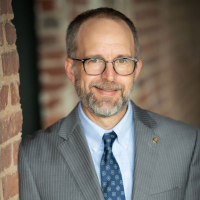High Point Estate Lawyer, North Carolina
Calvin Scott Meyers
✓ VERIFIEDEstate, Collection, Bankruptcy & Debt
Scott focuses his practice on dispute resolution and litigation, as well as representation of creditors in bankruptcy matters. He helps businesses, bu... (more)
Elizabeth Maclean Koonce
Land Use & Zoning, Municipal, Wills & Probate, Estate Planning
Status: In Good Standing
David K. Rosenblutt
Litigation, Wills & Probate, Workers' Compensation, Business Organization, Personal Injury
Status: Deceased Licensed: 45 Years
Leigh Anne Kasias
Wills, Trusts, Estate Planning, Elder Law
Status: In Good Standing Licensed: 24 Years
Aleta Jo Kiser
Real Estate, Wills & Probate, Trusts, Bankruptcy
Status: In Good Standing Licensed: 27 Years
Kevin L. Rochford
Elder Law, Trusts, Wills & Probate, Social Security
Status: In Good Standing Licensed: 36 Years
David L. Cecil
Residential Real Estate, Commercial Real Estate, Real Estate, Estate, Bankruptcy
Status: In Good Standing Licensed: 32 Years


